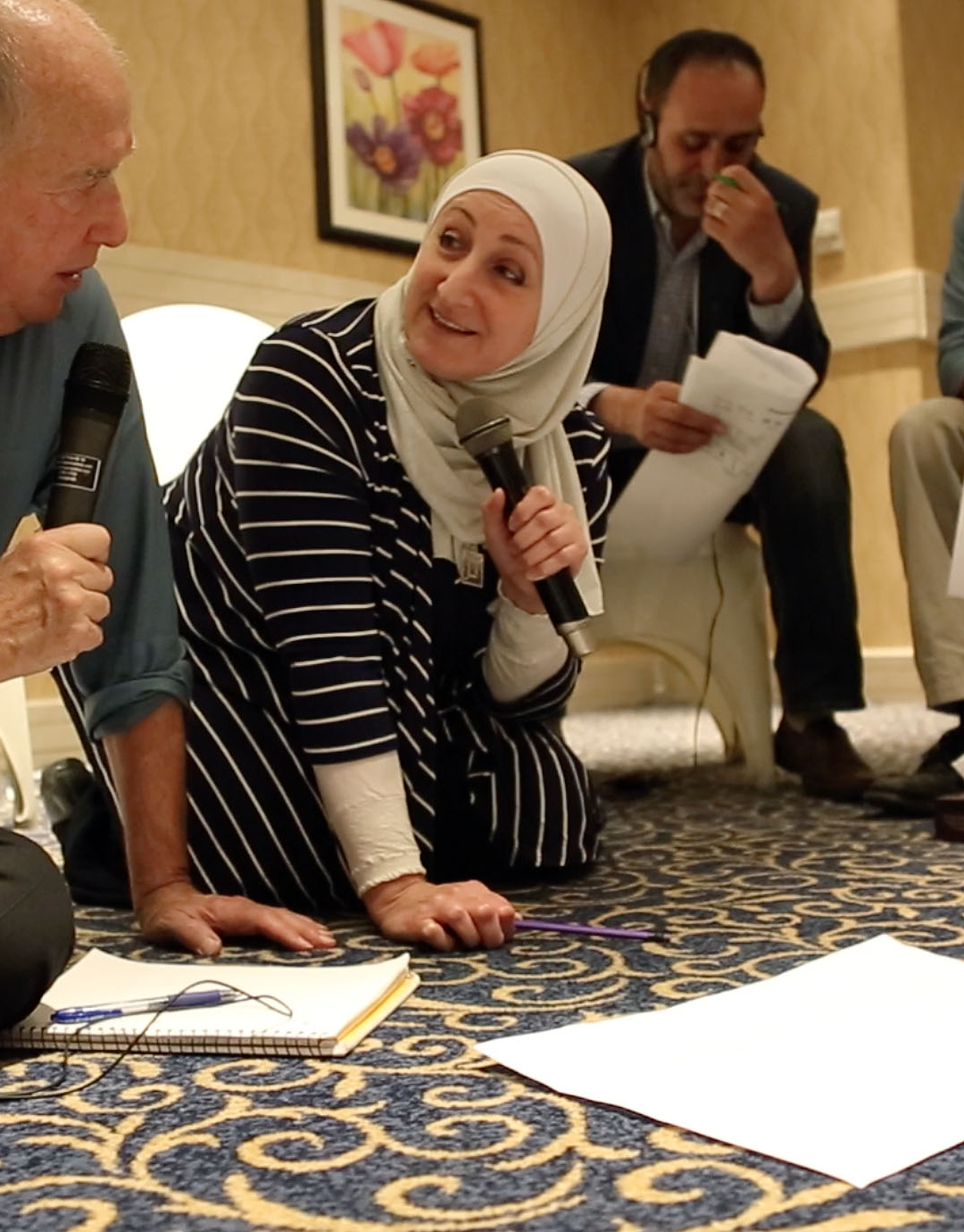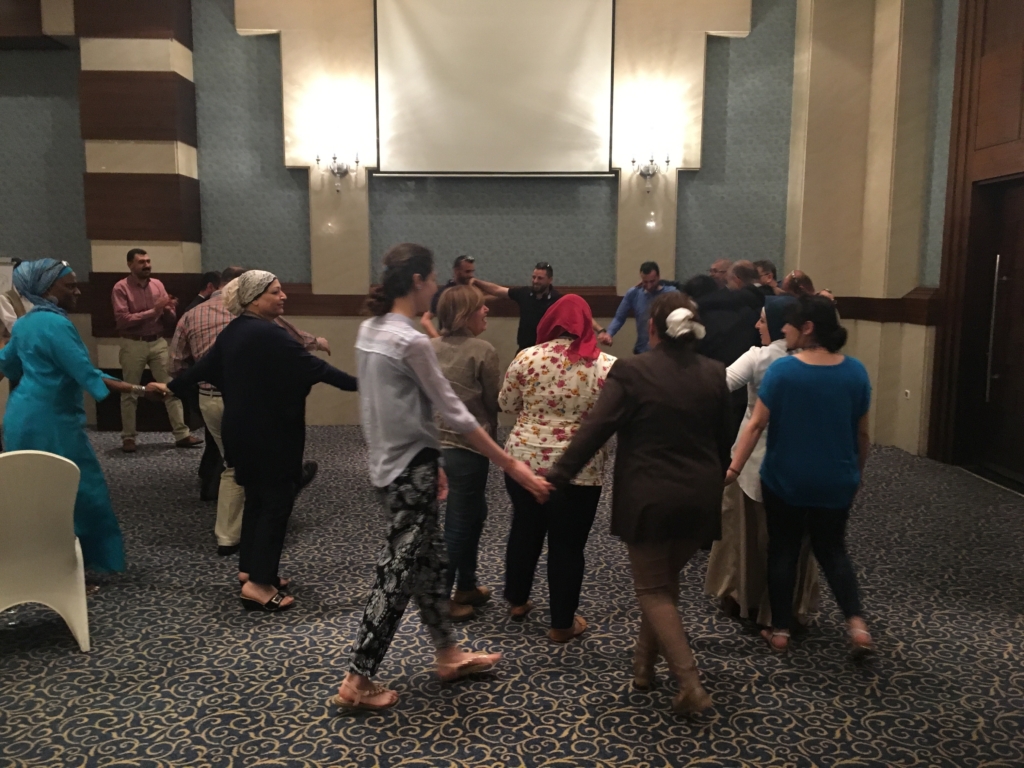
Hope and Healing for Syrian Refugees
Since 2017, we’ve partnered with the Noor Al-Hussein Foundation’s Institute for Family Health to bring trauma relief to Syrian refugees and those providing essential services to them in Jordan.
Currently, there are some 646,000 Syrian refugees living in Jordan. Many Syrians, particularly young people, are in urgent need of safe spaces to discuss their grief and traumatic experiences, and to share the anger and fear that can overwhelm them.
Thirty-two percent of Syrian refugee adults report feeling so hopeless that they do not want to continue living, and 33% feel unable to carry out essential activities of daily living. 54% of displaced Syrians also have severe emotional disorders. Syrian families living in Jordan are dealing not only with previous exposure to war-related violence and loss, but also with their current, extremely stressful social and economic conditions. Meanwhile, burnout among refugee leaders and aid workers continues to mount.
The widespread level of despair among refugees is often a result of stress: when it is overwhelming or chronic and is unaddressed, stress disrupts every physiological function and contributes significantly to every major psychological and physical disorder. These include post-traumatic stress disorder, depression, heart disease, cancer, immune disorders and pain syndromes, as well as substance abuse. Left unaddressed, this level of population-wide anguish can easily lead to a chronically debilitated, angry and despairing population.
Our Work
In 2017, we launched a healing and resilience-building program for Syrian refugees in Jordan. The objectives of this project are to:
- Provide immediate trauma relief to thousands of traumatized Syrian refugees in Jordan, while also addressing burnout in those providing service to refugees;
- Equip refugee service organizations in Jordan to provide trauma relief for tens of thousands of Syrian refugees in the years to come; and
- Act as a model program for mental health and psychosocial support for refugees throughout the region.
Our program is designed to meet a wide variety of psychological problems, providing direct trauma-relief services for refugees while building the capacity of local partners to integrate this work into existing institutions.
On July 10-13, 2017, CMBM completed the second major stage of its comprehensive training program for Syrian refugees. The training was held in Amman, Jordan. Trainees came from the Institute for Family Health’s urban and rural community health clinics, including those in all major refugee camps; the United Nations High Commissioner for Refugees (UNHCR); the United Nations Population Fund (UNFPA); the Collateral Repair Project; the International Rescue Committee; Save the Children; and the Islamic Medical Association of North America.
Learn more about CMBM’s work with Syrian refugees and those who provide essential services to this war-traumatized population in Jordan.
Trainees are now facilitating Mind-Body Skills Groups and workshops, which provide critical trauma-relief services, for many hundreds of refugees and host community members across Jordan. CMBM is providing intensive, weekly clinical supervision to trainees as they lead their first round of groups. These trainees will be able to continue providing services to thousands of refugees for years to come.

Syrian refugee leaders and aid workers who have heard about the training have expressed great interest in participating in another full round of training.
The program in Jordan is implemented with CMBM’s local partner, the Noor Al-Hussein Foundation’s Institute for Family Health. We plan to proceed according to our proven model for working with war-affected populations, which was initially developed with Kosovo refugees in Macedonia and then refined for our Gaza program.
In the face of this chaos, CMBM’s model of self-care and group support offers healing, resilience, and hope.
FUNDING FOR THIS PROGRAM GENEROUSLY PROVIDED BY:



